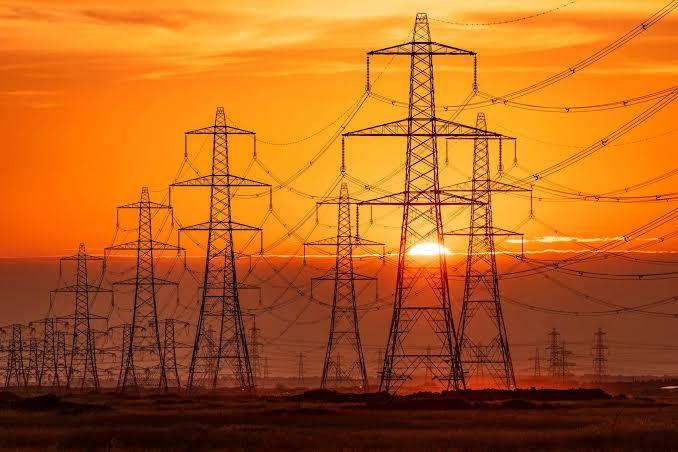The Minister of Power, Adebayo Adelabu, has hailed the historical successful grid synchronization recently conducted in collaboration with the Nigerian Independent System Operator (NISO) and West African Power Pool (WAPP), stating that the landmark development clearly demonstrates that regional technical alignment is feasible and marks a major step toward eventual full integration.
Adelabu stated that this integration shifts Nigeria into a modern operating environment where its electricity network is an independent component of a shared regional framework, rather than functioning in isolation.
The minister who spoke at the recent maiden NISO Stakeholders’ Engagement in Abuja, clarified that while this synchronization is at the testing stage, once permanent synchronization is achieved, Nigeria will benefit from a stronger, more resilient system that includes: cross boarder support, enhanced grid stability, reduced risk of system disturbances, and improved overall reliability of electricity supply.
“This exercise represents the first time in history that Nigeria has operated in a unified, stable, and fully harmonize configuration with the rest of the sub-region. While this is not yet a permanent synchronization, the successful test clearly demonstrates that regional technical alignment is feasible and marks a major step toward eventual full integration.
“The significance of this development cannot be overstated. Integrating our national grid into the broader regional system places Nigeria at the centre of a modern operating environment where electricity networks no longer function in isolation but as interdependent components of a shared regional framework. Once permanent synchronization is achieved, Nigeria will operate under a stronger, more resilient system, benefiting from cross-border support that enhances grid stability, reduces the risk of system disturbances, and improves the overall reliability of electricity supply,” he said.
The synchronization exercise, conducted between 05:04 a.m. and 09:04 a.m., involved the Nigerian grid which includes Niger Republic and parts of Benin and Togo and the rest of West Africa’s interconnected systems covering Ghana, Côte d’Ivoire, Burkina Faso, Liberia, Sierra Leone, Guinea, Senegal, The Gambia, Guinea Bissau, and Mali.
According to the minister, for four uninterrupted hours, power flowed seamlessly across national borders, operating at a single stable frequency and proving that West Africa is now technically capable of functioning as a unified power bloc; stating that this achievement ranks among the most significant milestones in the history of WAPP.
“The test marks the first successful large-scale synchronization attempt since 2007, when a short-lived trial lasted only seven minutes before failing. The breakthrough recorded in 2025 is the outcome of years of renewed investment, strengthened operational discipline, and Nigeria’s deliberate resolve to position itself as a central player in the regional electricity market. It reflects enhanced system-monitoring infrastructure, tighter frequency control, harmonize operational procedures across participating National Control Centres, and a new standard of real-time communication and coordination between NISO and the WAPP Information and Coordination Centre.
“By becoming part of a larger synchronous area, Nigeria will be able to rely on regional support during periods of supply shortfall, while also strengthening neighbouring networks when required. This form of mutual support is a defining feature of advanced power systems globally and is essential for long-term regional energy security,” he added.
The impact of this achievement is already evident in several critical areas, he declared. “First, it strengthens confidence in Nigeria’s power system. For many years, factors such as gas shortages, infrastructure constraints, vandalism, and occasional system disturbances have adversely affected grid stability. The successful synchronization test shows that, despite these challenges, Nigeria has the technical competence, engineering capacity, and institutional discipline required to operate at global standards. It positions the country as a credible partner for cross-border energy exchange and a reliable participant in the West African Electricity Market.
The development also transforms Nigeria’s economic prospects in the electricity sector. Synchronisation trial is the primary prerequisite for full participation in the regional electricity market enabling competitive energy trading, expanded commercial agreements, and sustained power exchanges with neighbouring countries. This creates opportunities for Nigeria to earn foreign exchange, optimize generation resources, and attract increased private investment. Independent power producers are more willing to invest where stable, regional markets exist beyond the constraints of a single domestic buyer.
Adelabu reiterated the ministry’s commitment at the national level in ensuring that reforms translate into improved service delivery, while also continues to work closely with development partners to support investment that improve system reliability, market liquidity, and renewable energy integration. He also disclosed that efforts are ongoing to strengthen regulatory alignment between the central and subnational government, expand transmission infrastructure, improve sector commercialization, ensure reliable and sustainable supply and support initiatives that enable states market development in line with the provision of the law.
The minister asserted that NISO has begun a strong note but its effectiveness hinges significantly on the cooperation and support of all market participants and institutions across the section by complying with established procedures, providing timely information and participating actively on engagements.

